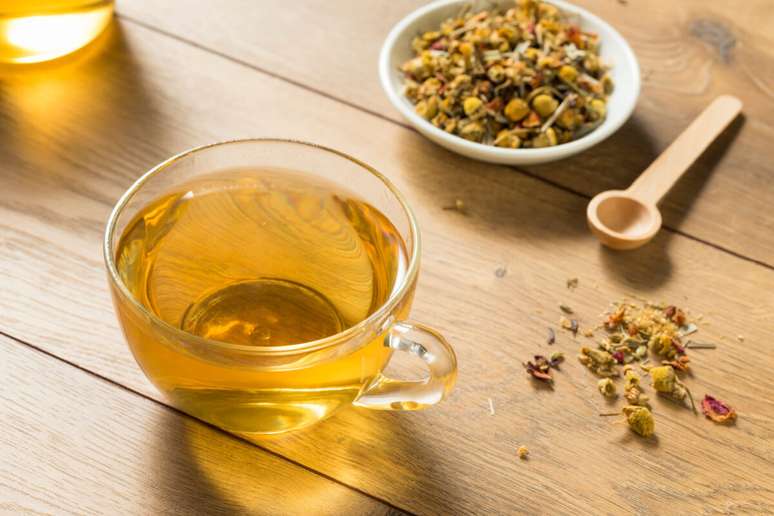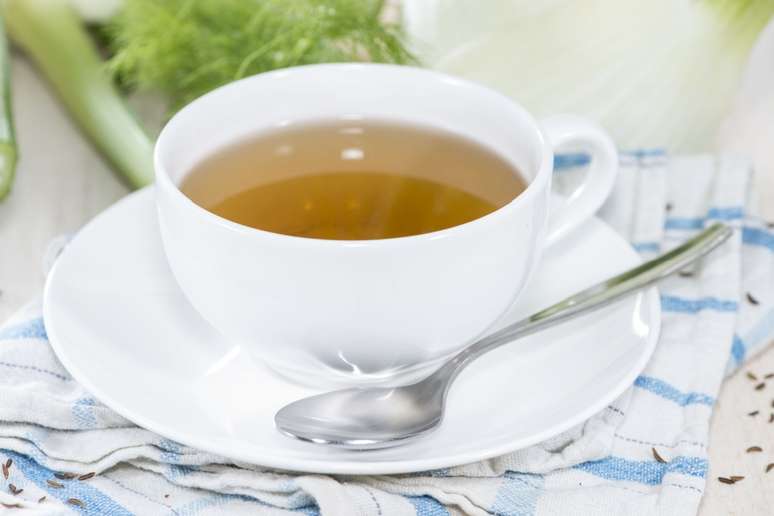The nutritionist explains the risks they can cause and lists safe options for pregnant women
Whether for relaxation, warming the body or simply enjoying tea, tea is a natural beverage that provides numerous health and well-being benefits. During pregnancy, especially due to the usual nausea, it is very common for women to choose to use this type of drink.
Therefore, Natalia Barros, nutritionist with a master’s degree in Science from UNIFESP and founder of NB Clinic, lists some options that can be safe for pregnant women and those that should be avoided. However, remember to consult a doctor before consuming them, in order to confirm their safety for mother and baby.
It can be consumed during pregnancy
1. Ginger tea
Widely known for its ability to relieve nausea and vomiting, common symptoms during pregnancy. Furthermore, studies have shown that ginger is Safe when consumed in moderate quantities during pregnancy.
Its active compounds, such as gingerols, are believed to exert antiemetic and anti-inflammatory effects. However, it is important to note that excessive consumption of ginger can increase the risk of bleeding, due to its antiplatelet properties.
2. Fruit peel tea
Apple, peach or peel tea orange they are generally considered safe during pregnancy. In addition to offering a variety of vitamins and antioxidants, they are low in caffeine and are therefore a less risky option for pregnant women. However, it is important not to overdo it, as citrus peels can contribute to heartburn symptoms in some women.

Herbal teas to avoid during pregnancy
According to Natalia Barros, some teas contain harmful herbs that affect hormones and the development of the fetus. Additionally, she warns that these drinks should not be used as a substitute for hydration.
“Water is essential during pregnancy to maintain adequate hydration and ensure healthy development of the baby. Excessive consumption of tea can lead to insufficient water intake,” she warns.
Below, the professional lists the types of tea that may pose a danger to pregnant women.
1. Chamomile tea
Although chamomile is often recommended as a natural tranquilizer, its use during pregnancy is cause for concern. Some studies suggest that chamomile, if consumed in high quantities, has abortive and emmenagogic properties, that is, it stimulates menstruation and uterine relaxation, which can increase the risk of miscarriages. Research showed increased signs of miscarriage and premature births in pregnant women who consistently used chamomile.
2. Green tea
A rich source of catechins and caffeine which, if consumed in excess during pregnancy, can be associated with complications such as premature birth and low birth weight. Therefore, drinks containing green tea should be avoided.

3. Fennel tea
Fennel is often used to relieve digestive problems. However, its consumption in large quantities can stimulate uterine contractions, which raises concerns about its use during pregnancy. pregnancy.
4. Lemon balm and mate tea
Both contain caffeine, which makes their consumption during pregnancy inadvisable, as the compound is able to influence the development of the nervous system and increase risk of premature birth.
Natalia Barros emphasizes the importance of nutritional monitoring during pregnancy for this and other reasons. “It is essential that pregnant women consult a nutritionist for specific guidance on diet and tea consumption during pregnancy, to ensure maternal and fetal health during this critical period,” she says.
5. Horsetail tea
Horsetail contains an enzyme called thiaminase, which can degrade thiamine, also known as vitamin B1, in the body. Furthermore, the plant contains silica, a mineral substance which, in large quantities, can be toxic and harmful, especially for pregnant women.
6. Star anise tea
One of the main concerns regarding the you of star anise during pregnancy is due to its potential to stimulate uterine contractions. The plant contains compounds that may have uterotonic properties, meaning they are able to induce or enhance contractions of the uterus.
Additionally, star anise contains anethole, a compound that, in large quantities, can be toxic. Although moderate consumption of this tea is generally considered safe for adults, the safe dose during pregnancy is not clearly defined. That said, many health professionals recommend that pregnant women avoid its consumption or, at least, limit it to small quantities.
By Michelly Souza AND EdiCase Editorial
Source: Terra
Ben Stock is a lifestyle journalist and author at Gossipify. He writes about topics such as health, wellness, travel, food and home decor. He provides practical advice and inspiration to improve well-being, keeps readers up to date with latest lifestyle news and trends, known for his engaging writing style, in-depth analysis and unique perspectives.








